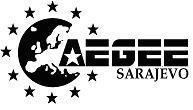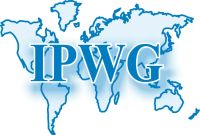


Results of "EU & Western Balkans", a conference by AEGEE-Sarajevo and IPWG, Sarajevo 9 -13 November 2004.
Last week, Forty-five young people from all over Europe, out of which a significant number from the Balkan countries, took part in the conference "EU & Western Balkans" that mainly debated the current relations between different parts of this region and the European Union, as well as the challenges that the Balkans are facing for EU accession.
By lectures, workshops, discussions, and a cultural program the participants gained knowledge on the Balkan region from a historical, economical, political and cultural perspective.
The Head of Mission of the EC delegation in Bosnia, Ambassador Humphreys, opened the conference with presenting the results achieved after the Thessaloniki Summit in 2001. Moreover he announced that currently efforts are made to let Bosnian citizens travel visa free to the EU by the time Croatia will become member state of the EU; which is of great importance from the perspective of student mobility.
Mr. Hoffman presented the role of the EU in the Yugoslav conflict, and explained that in the past the EU itself was not well coordinated and therefore could not agree on a common policy towards the conflict. This resulted in a weak approach that couldn't stop the ongoing violence.
During the discussion on the international relations in the region, Mr. Starcevic from the Croatian Embassy expressed optimism on the EU accession prospect of countries in the region, whereby Croatia expects to have finished the negotiations by 2007. Croatia has Bosnia as main trade partner in the region. The embassy supports and encourages youth exchanges between the both countries.
In a round table discussion with participants from Bosnia and Transparency International, awareness was raised on the corruption in higher education, something Slovenian students couldn't imagine it existed. Bosnian students can buy the exams in advance, or in an other way make an arrangement with the professor, if they don't want to learn their exam. According to Ermina Memic-Porca of Transparency International it is of great importance to change the attitude of people towards corruption. It should be clear that corruption should not be accepted, but strongly fought.
Concerning Human Rights, Mr. Moratti of the International Committee for Human Rights, made clear that after almost having solved the problems with the return of refugees and restitution of property, the time has come to focus on other issues, such as minority rights.
Mr. Ots of the Office of the High Representative discussed status and potential of the four economic strengths of Bosnia: agriculture, forestry, tourism and ICT. The participants gave their input on improvement of tourism, since the country has a lot of unknown treasuries.
On behalf of the EU presidency, Mr. Bosscher Ambassador of the Netherlands to BiH, analysed together with students the challenges Bosnia faces on its way to enter the EU. If the citizens of Bosnia want to enter the EU, they should give up some sovereign rights. The state BiH can have its entities as agreed in the Dayton agreement as long as they have an efficient government. "Centralize what is necessary, decentralize what is possible", according to Mr. Bosscher.
Professor Zagar from the University of Ljubljana gave an overview of how multi ethnic societies where managed in the long history of the region.
The workshop on conflict resolution by Mr. Radunovic dealt with the question whether the change of border would solve problems the region is currently is facing. Although most participants where in favour of changing borders, those against changing the borders came to the conclusion that "we'd better focus on other issues like criminality and human rights rather than having a dispute on changing the borders; when having entered the EU, we will all be together again anyway".
During the conference, which included a city tour trough Sarajevo and an excursion to Mostar, participants expressed their enthusiasm for cultural heritage of Bosnia, Bosnia's beautiful nature, the charming atmosphere of Sarajevo but also their shock when seeing heavily damaged parts of Mostar. Prejudices of Bosnia being a war torn country with nothing to offer, have been set aside, when a participant stated that she would definitely come back again to Bosnia.
Jasna Hadzialic, president of AEGEE-Sarajevo was overwhelmed by the enthusiasm of the participants who stated to have had "a wonderful time". Jasna herself: "I'm amazed, it was great!"
more info: www.aegee.org/eue
(c) 2004 AEGEE Sarajevo